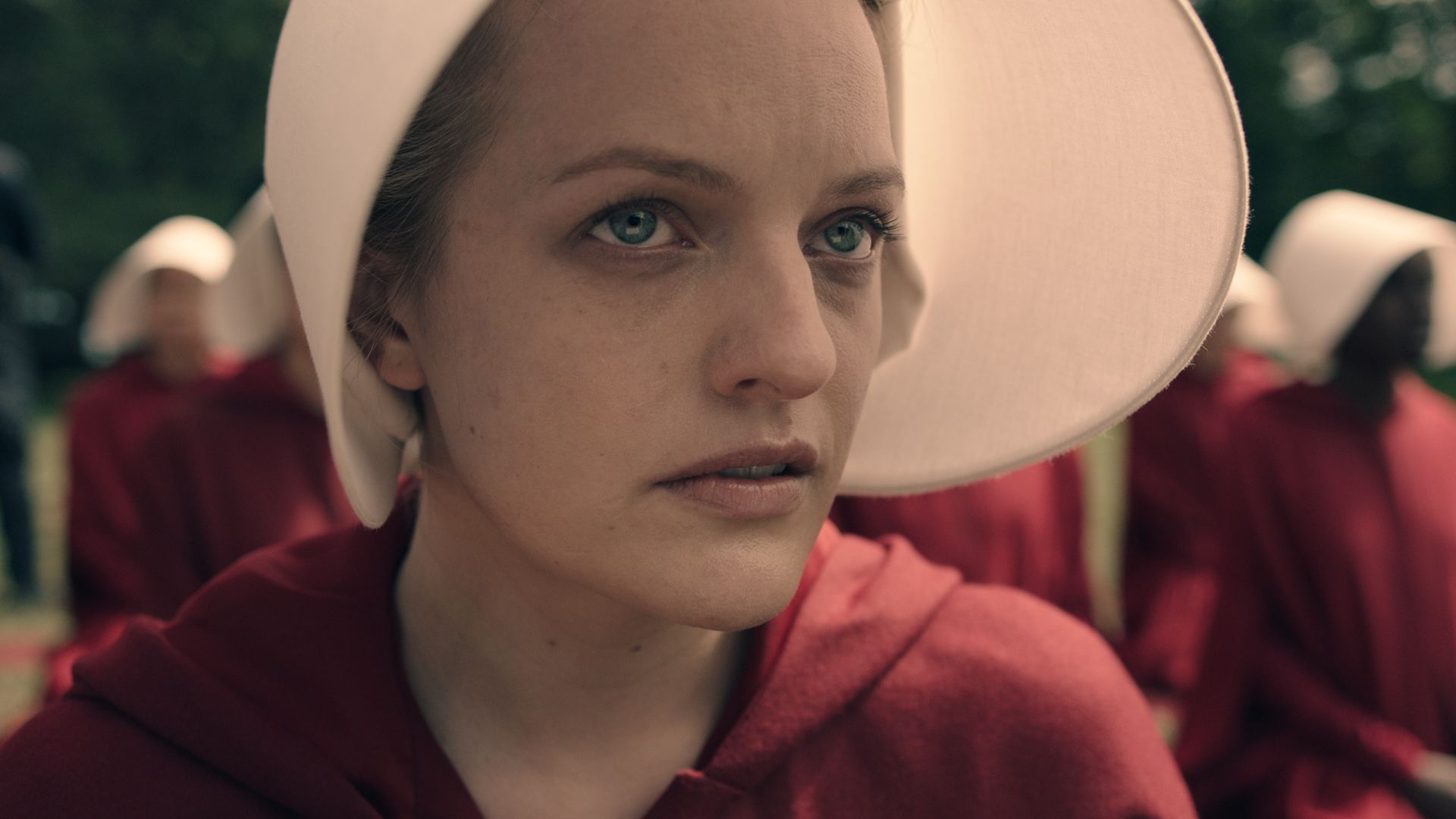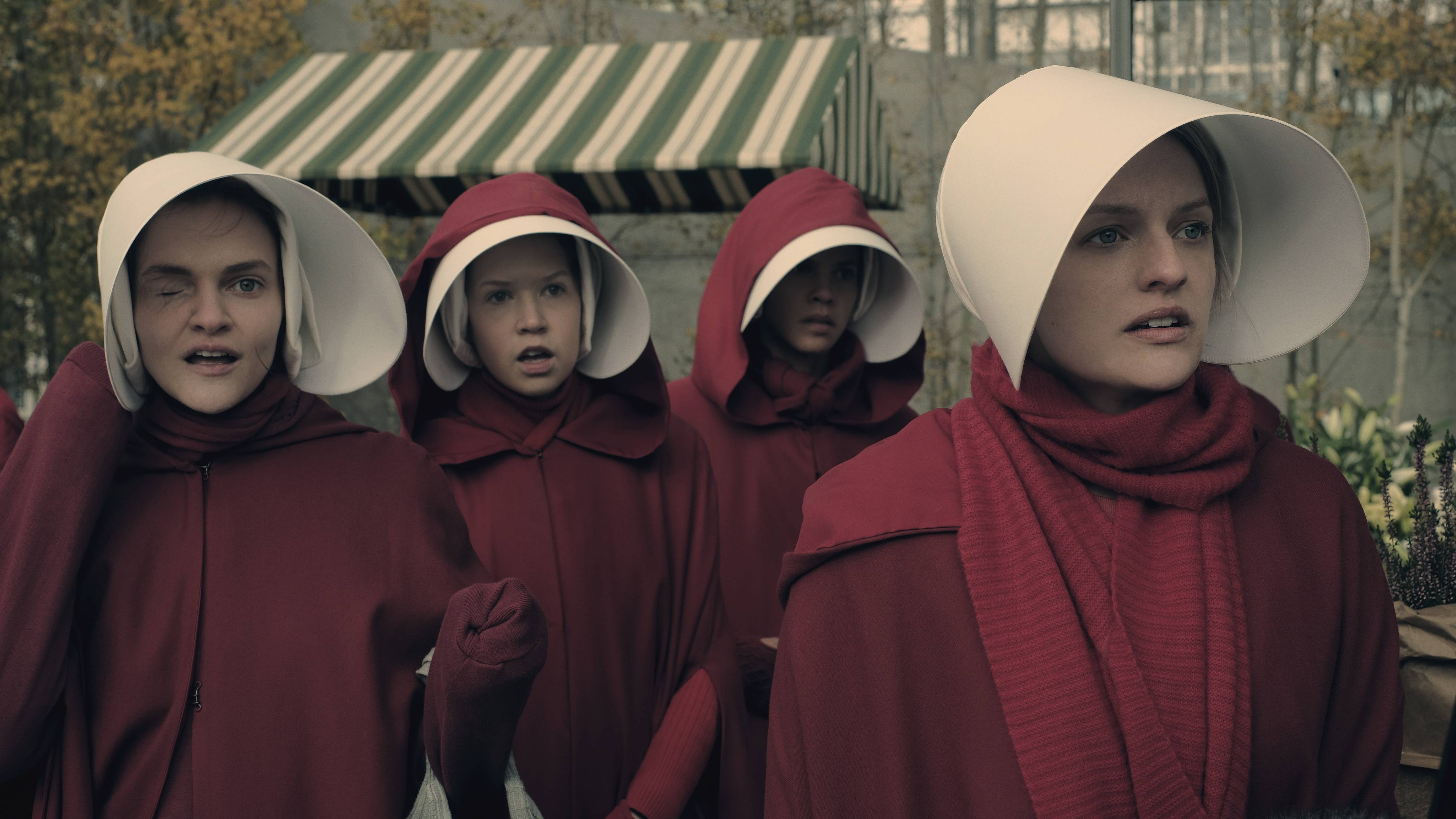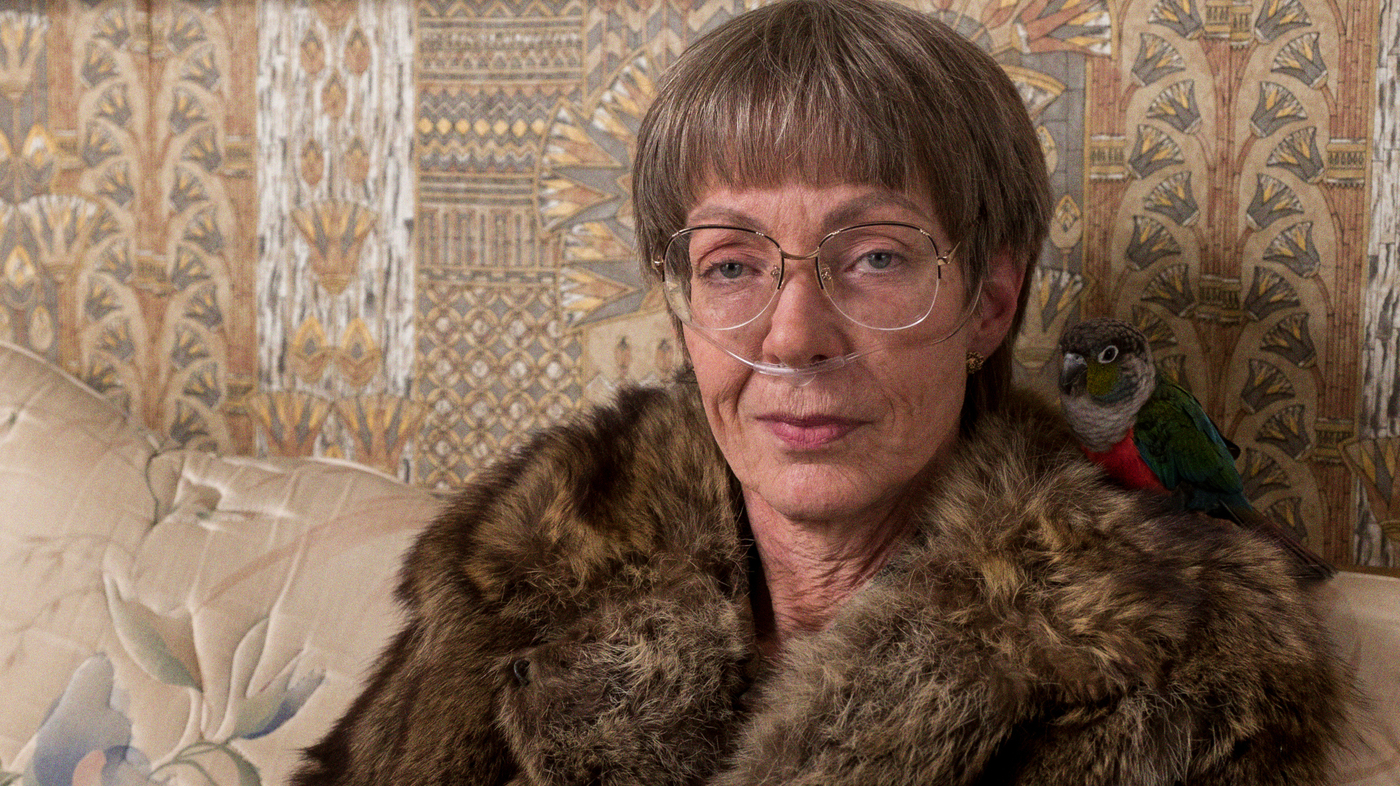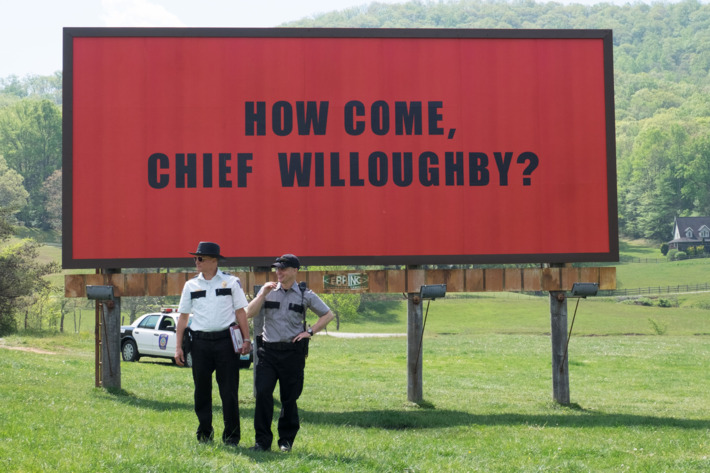Golden Globe Awards 2018
An Evening of Continuity with Change
At a time in Hollywood where the #MeToo and #TimesUp movements are promising a way forward for women and underrepresented voices in the mainstream, the Golden Globes did pretty much the same thing it does every year: it kept the status quo. There were no huge surprises of the night and, even when the most deserving nominees won, not a lot to suggest that this ceremony was happening within the context of the revolution that’s being promised.
Still, the best moments, predictably enough, were dished out by women and minorities, either in the form of scathing one-liners or eloquent treatises on the industry. Jessica Chastain, Issa Rae and Hong Chau got the best punchlines in the opening monologue, while Natalie Portman didn’t let it escape anyone’s attention how narrow the field for Best Director was. Meanwhile, Laura Dern, Elisabeth Moss and Oprah Winfrey all delivered heartfelt, powerful speeches on the need to continue to speak out against inequality and abuse within the community. And Sterling K. Brown – one of the few people of colour to win – made a triumphant case for how hard it’s gonna be to ignore actors of different ethnicities going forward.
At the end of the day though, it’s an awards show, right? So, accordingly, here is the list of winners from last night’s Golden Globes, coupled with who maybe should’ve won instead.
Best Performance by an Actress in a Limited Series or Motion Picture Made for Television

Who won: Nicole Kidman as Celeste Wright in Big Little Lies. Her performance as the professional lawyer and loving mother with an abusive husband was a devastatingly real portrait of the harm caused by domestic violence.
Who should’ve won: Uuuum… literally anyone else. Ok, I haven’t seen much of The Sinner – Jessica Biel seemed to be doing pretty great in the pilot – but Reese Witherspoon really did outshine Kidman in Big Little Lies. Not to mention the phenomenal performances from both Susan Sarandon and Jessica Lange in Feud. Kidman was very good, no doubt, just maybe not quite as deserving as at least 3/5ths of the rest of the nominees.
Best Performance by an Actor in a Supporting Role in Any Motion Picture

Who won: Sam Rockwell as Officer Jason Dixon in Three Billboards Outside Ebbing, Missouri. His performance as the racist, somewhat dim-witted police officer was confronting, tragic and, in the strangest way, kinda sympathetic.
Who should’ve won: Well, probably Sam Rockwell. He managed to spin a surprising amount of pathos from a character who should’ve been outright despicable in a deeply ambiguous film. But, otherwise, I would’ve been happy with a win for Willem Dafoe for his lowkey, melancholic turn as an overworked motel manager in The Florida Project.
Best Performance by an Actress in a Television Series — Comedy

Who won: Rachel Brosnahan as Miriam “Midge” Maisel in The Marvelous Mrs. Maisel. Which… I have not seen.
Who should’ve won: Again, having not watched The Marvelous Mrs. Maisel, I’m sure Brosnahan is quite good, but I really think it’s about time the Golden Globes showed Pamela Adlon some love for her heartbreaking/warming performance in Better Things. Or, failing that, Alison Brie’s fantastic, surprisingly likable turn as a super flawed character in GLOW.
Best Performance by an Actress in a Television Series — Drama

Who won: Elisabeth Moss as June Osborne/Offred in The Handmaid’s Tale. Her performance as one of the few remaining fertile women on Earth subjected to ritualised rape was just about the most brutal and – yes – brave thing I saw on TV last year.
Who should’ve won: Aaah, I mean it really had to go to Moss. I think I would’ve been just as happy had it gone to Maggie Gyllenhaal for her role in The Deuce, mainly because it’s a fantastic show that didn’t get any other noms this year. But honestly, this is – along with Rockwell – one of the most deserved wins of the night.
Best Performance by an Actor in a Television Series — Drama

Who won: Sterling K. Brown as Randall Pearson in This Is Us. Which… yep, I also haven’t seen.
Who should’ve won: All respect to Brown – a prodigious actor who was a standout in the first season of American Crime Story – but, as I’ve never seen This Is Us, I’m inclined to wish Bob Odenkirk could get some proper recognition for his performance as the titular role in Better Call Saul. Known largely as a comedian before Saul Goodman came along, Odenkirk has made the character an indelible part of the television landscape over the last decade, so a Globe or Emmy win at some point before the show ends would be nice.
Best Television Series — Drama

What won: The Handmaid’s Tale, the story of the United States devolving into a theocratic realm known as “Gilead” after infertility becomes widespread. The few remaining women who are capable of conceiving children are reduced to chattel and traded amongst the higher class for their breeding properties.
What should’ve won: I mean, there are other shows that could’ve been nominated – from The Deuce to The Leftovers – but amongst these nominees, The Handmaid’s Tale was easily the most vital and worthy of the win. Because I swear to Christ, if they’d given it to Game of Thrones for last year’s season, I would’ve burned that motherfucker to the ground.
Best Performance by an Actor in a Supporting Role in a Series, Limited Series, or Motion Picture Made for Television

Who won: Alexander Skarsgård as Perry White in Big Little Lies. His performance as the outwardly dashing husband who subjects his wife to all manner of physical and sexual abuse was hard to watch but undoubtedly powerful as a true-to-life villain.
Who should’ve won: Personally, I found David Thewlis’ turn as the loquacious, seedy V.M. Varga in Fargo‘s third season to be the most worthy of a win in this category. But Skarsgård did give us one of the biggest, most realistic arseholes of 2017, and one that felt scarily necessary at that: the kind that hides in plain sight.
Best Original Score — Motion Picture

Who won: Alexandre Desplat for his score for The Shape of Water. Which… third time lucky, I ain’t seen it. God, this is gonna get embarrassing soon…
Who should’ve won: Hans Zimmer is always a safe bet for this sort of thing, and Dunkirk shows why: it’s a sweeping, epic score for a likewise film. That said, I gotta go with Carter Burwell, who’s tender, lively compositions bolstered Three Billboards with the same grace and splendour that informed his iconic score for In Bruges.
Best Original Song — Motion Picture

Who won: Pasek and Paul for their song “This Is Me” from The Greatest Showman. Which… I guarantee you I will never see.
Who should’ve won: Actually, this is one of four categories in which I haven’t seen any of the nominated films. So, I mean… y’know, congrats to Pasek and Paul, I guess.
Best Performance by an Actor in a Motion Picture — Musical or Comedy

Who won: James Franco as Tommy Wiseau in The Disaster Artist. His spot-on impression of Wiseau centres a film that is less of an exposé on the making of The Room than a fractured romance between two men, one of whom just happens to be some sort of brain-damaged alien.
Who should’ve won: You’ll notice I qualify Franco’s work above as an “impression”, rather than a “performance”. It’s true: Franco’s voice and mannerisms are pretty accurate, but his acting isn’t an embodiment so much as a very well-honed impersonation. So it’s kinda devastating that the Golden Globes would choose to reward him over Daniel Kaluuya’s stunning work in Get Out, which anchors what could be an outrageous premise with a resolve that is almost overwhelming. It’s a shame, but what are you gonna do? Also, it’s very kind of the Hollywood Foreign Press to consider what Ansel Elgort was doing in Baby Driver a “performance”.
Best Performance by an Actress in a Supporting Role in a Series, Limited Series, or Motion Picture Made for Television

Who won: Laura Dern as Renata Klein in Big Little Lies. Her performance as the highly-strung, difficult-to-like working mother was a thankless but deeply essential role, especially as it’s her actions that set a lot of Big Little Lies‘ mysterious plot into motion.
Who should’ve won: “Difficult-to-like” might sound harsh, but it’s the truth in the early going. Klein is a snob who refuses to listen to reason, taking helicopter parenting to the extreme and ostracising children as a means of revenge. That said, her performance is a masterclass in ambiguity, making Klein human enough that her foibles become relatable as an external display of insecurity. Shailene Woodley definitely held her own in the show, and Ann Dowd was terrifying in The Handmaid’s Tale, but I’m glad this went to Dern.
Best Motion Picture — Animated

What won: Coco. Which… look, I’ll get around to it, ok?!
What should’ve won: I fucking refuse to watch The Boss Baby. Besides that, I’m sure I’ll give the other nominees here a look at some point, but with Pixar’s track record I’ll be pretty surprised if this doesn’t wind up being my pick anyway.
Best Performance by an Actress in a Supporting Role in Any Motion Picture

Who won: Alison Janney as LaVona Fay Golden in I, Tonya. Which… I’m on the fence as to whether I’ll check it out or not. Feels like it could be a bit of an underwhelming biopic, y’know?
Who should’ve won: Janney’s great, and I’m sure she’s a powerhouse in I, Tonya, but I think Laurie Metcalf’s role as Marion McPherson in Lady Bird is one of the best performances of 2017. Without becoming a caricature or goading the audience for sympathy, she plays one of the most authentic mothers I’ve ever seen in a film, equal parts domineering, exasperated and supportive of her whirlwind teenage child. I didn’t expect her to win, but it would’ve been a nice surprise.
Best Screenplay — Motion Picture

Who won: Martin McDonagh’s script for Three Billboards Outside Ebbing, Missouri. It’s a deeply humanistic screenplay, packed full of McDonagh’s signature black humour and superbly captured character moments.
Who should’ve won: This is mighty conflicting. McDonagh, in my opinion, is one of the greatest stage and screenplay writers of his generation, with works encompassing The Pillowman and In Bruges. I’m elated that he won. Buuuut… I think Lady Bird is the better film, and in no small part due to the discreet, pervasive charm and splendid observations of Greta Gerwig’s script. Either win would’ve been richly deserved, but there’s a part of me that wishes Gerwig could’ve gotten her due.
Best Picture — Foreign Language

What won: In the Fade. Which… I mean, Jesus, how many foreign films did you see last year?
What should’ve won: I don’t know. I just. Don’t. Know.
Best Performance By an Actor in a Television Limited Series or Motion Picture Made for Television

Who won: Ewan McGregor as Emmit Stussy / Raymond “Ray” Stussy in Fargo. His dual performance as rivalling brothers – one a successful parking lot magnate, the other a down on his luck parole officer – was a stabilising agent at the core of the show’s shaggy third season.
Who should’ve won: Y’know what? This is probably the strangest category of the night. There’s Kyle MacLachlan, back after all these years as Dale Cooper, Jude Law as the Pope, Geoffrey Rush as Albert Einstein and Robert De Niro, for some reason. Really, anyone could’ve won and my response would’ve been “…huh.” That said, McGregor was pretty fantastic in a demanding role. Maybe Jude Law might’ve been a better pick just on pure emotionality, but still, this was a good choice.
Best Television Series — Comedy

What won: The Marvelous Mrs. Maisel. Which… seems pretty interesting, I suppose.
What should’ve won: Honestly, I’m just glad it didn’t go to Will & Grace. I wouldn’t have been mad with a win for Black-ish, of course, but Master of None did have an outstanding second season last year. It’s a shame the show couldn’t get the recognition it deserved as a program overall, but I guess the next best thing is…
Best Performance by an Actor in a Television Series — Comedy

Who won: Aziz Ansari as Dev Shah in Master of None. His performance is a mix of effortless charm and simmering insecurities that always complements the show’s stylistic excursions and quirks.
Who should’ve won: While Ansari isn’t the greatest actor, the role he conceived for himself in Master of None is him at his most naturally charismatic. It’s hard not to see Dev as just a slightly heightened version of Ansari, an quick-witted millennial who’s aware of the trappings of his generation but not at all immune to them. Yes, Anthony Anderson continues to do solid work in Black-ish, and – while I haven’t seen the show – it’s a joy to see Kevin Bacon get nominated for anything these days. But this award, by rights, had to go to Ansari.
Best Director — Motion Picture

Who won: Guillermo Del Toro for The Shape of Water. Which… looks pretty weird, huh? I mean, I’ll watch it, for sure.
Who should’ve won: No idea what the movie’s like, but Det Toro has been criminally undervalued as a director at the Globes and the Oscars for years now. On that level at least, this is a satisfying win. Of the other films I’ve seen, Christopher Nolan’s work on Dunkirk was predictably assured and tightly wound, while Martin McDonagh directed Three Billboards with an elegant restraint that suited the script perfectly. But, for the most part, fuck the Globes for not nominating Greta Gerwig for Lady Bird or Jordan Peele for Get Out. That is all.
Best Television Limited Series or Motion Picture Made for Television

What won: Big Little Lies. This superlative soap opera was one of 2017’s most consummate joys, a murder-mystery told in disjointed chronology that concerned itself with the lives of a smattering of affluent families and their school-age children.
What should’ve won: Emma Watson’s shocked excitement notwithstanding, this was almost certainly the most predictable win of the night. And for good reason: Big Little Lies spun trash into treasure, a show with all the trappings of daytime television that managed to be both engaging and riddled with fascinating characters. Personally, I think Feud was the better show and (not that this should count) the more timely example of women subverting the roles conceived for them by powerful men. Even so, Big Little Lies was the frontrunner because it was a deftly told story with some of the strongest actors currently working that made a real connection with audiences. So yeah, of course it won.
Best Performance by an Actress in a Motion Picture — Musical or Comedy

Who won: Saoirse Ronan as Christine “Lady Bird” McPherson in Lady Bird. Her performance as the fickle yet charmingly precocious lead character was perhaps the most impressive acting in a film last year.
Who should’ve won: Saoirse Ronan, that’s who the fuck should’ve won! Since her breakout role as the tragically misinformed young Briony in Atonement, Ronan has been a defining presence in cinema. She’s left her indelible mark on films as varied as Hanna, The Grand Budapest Hotel and Brooklyn, and now – at the age of 23 – she’s surpassed some of the greatest living actors with her work in Lady Bird. Sincere yet calculating, witty yet clumsy, Lady Bird joins Juno as one of the best teenage characters to ever grace the movies, and no one could’ve played her with the same verve and intellect as Ronan. Calling it now: she’s a shoo-in for Best Actress at the Oscars.
Best Picture — Comedy or Musical

What won: Lady Bird. The coming-of-age dramedy about an ambitious young lady locked in a perennial struggle with her mother and her distaste for her lower-middle class standing is a wonderfully told, beautifully realised film.
What should’ve won: I find myself in the weird position of thinking that Get Out is a slightly better film than Lady Bird, but that Lady Bird was much more deserving of this award. I mean, what is up with this category to start with? Is Get Out really a comedy?! Anyway, no film from last year was funnier and more affectionate towards its flawed characters than Lady Bird. At a time when the “coming-of-age” trope is so often bogged down by formula and cliché, Lady Bird revitalises the premise simply by paying more attention to the details of its protagonist without becoming self-indulgent or solipsistic. Without a doubt, it was the most tender and enriching comedy of last year.
Best Performance by an Actor in a Motion Picture — Drama

What won: Gary Oldman as Winston Churchill in Darkest Hour. Which… damn, we’ve had a few Churchill’s kicking around lately, huh?
What should’ve won: I’m shocked they didn’t give it to Daniel Day-Lewis. Not that I’ve seen The Phantom Thread – or any of the other nominees’ films – just, it kinda seems inevitable, doesn’t it? Anyway, I look forward to watching most of these at some point, but it is wonderful to see a legend like Oldman getting some props.
Best Performance by an Actress in a Motion Picture — Drama

Who won: Frances McDormand as Mildred Hayes in Three Billboards Outside Ebbing, Missouri. Her performance as the quietly enraged mother of a murdered teenager somehow managed to be maddeningly conflicting and deeply funny.
Who should’ve won: Frances Mc-fuckin’-Dormand needed to win this award. This is an absurd declaration, as I have seen exactly none of the other nominees’ films, but I can honestly say that it would’ve been criminal to give it to anyone else. I’m also aware that I just called the Oscar for Best Actress for Ronan about three minutes ago, and now my mind is being torn in twain. Because McDormand’s utter commitment to such a devastating role, without letting it become cloying or distasteful, is worth every award we have. I don’t think I’ve ever seriously hoped for this, but maybe there’ll be a tie…
Best Picture — Drama

Who won: Three Billboards Outside Ebbing, Missouri. The harrowing story of one woman’s quest for justice in the face of utter despair is tinged with prejudice, melancholy, gallows humour and just a touch of optimism.
Who should’ve won: This. This should’ve won. Last award of the night, and I feel as though a lot of what I’ve written about the previous winners for this film will have covered it, but Three Billboards is a compassionate film that has its roots in contradiction. It finds time for almost every single one of its characters – no matter how despicable or hopeless – to have some sort of redemption. In the face of death and despair, it argues for mercy, forgiveness and compassion. It’s not cheap or easy, but it’s real. Real fuckin’ good.